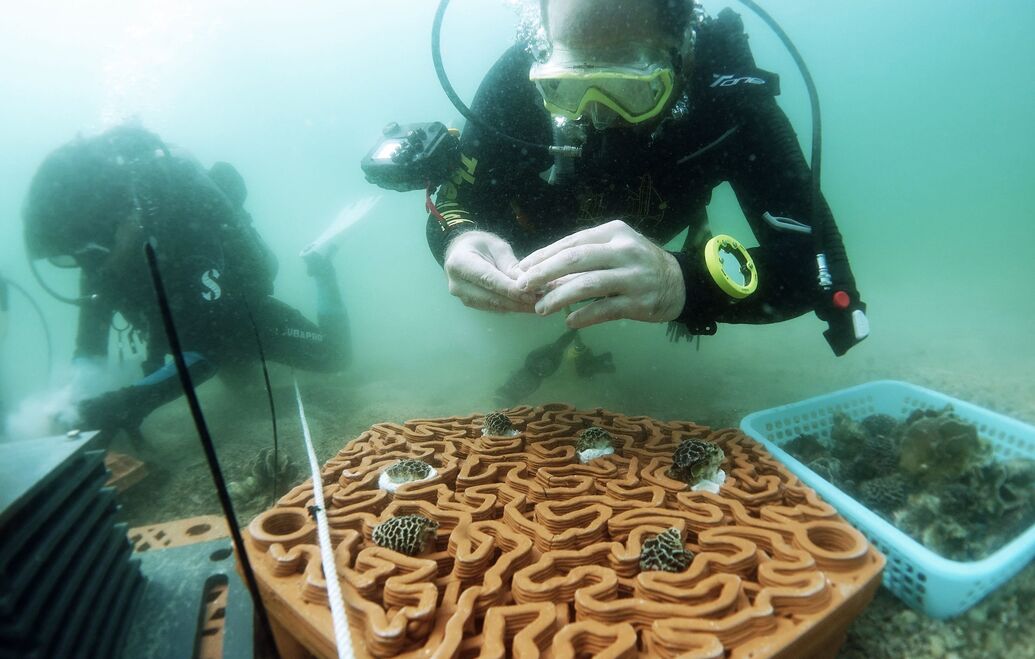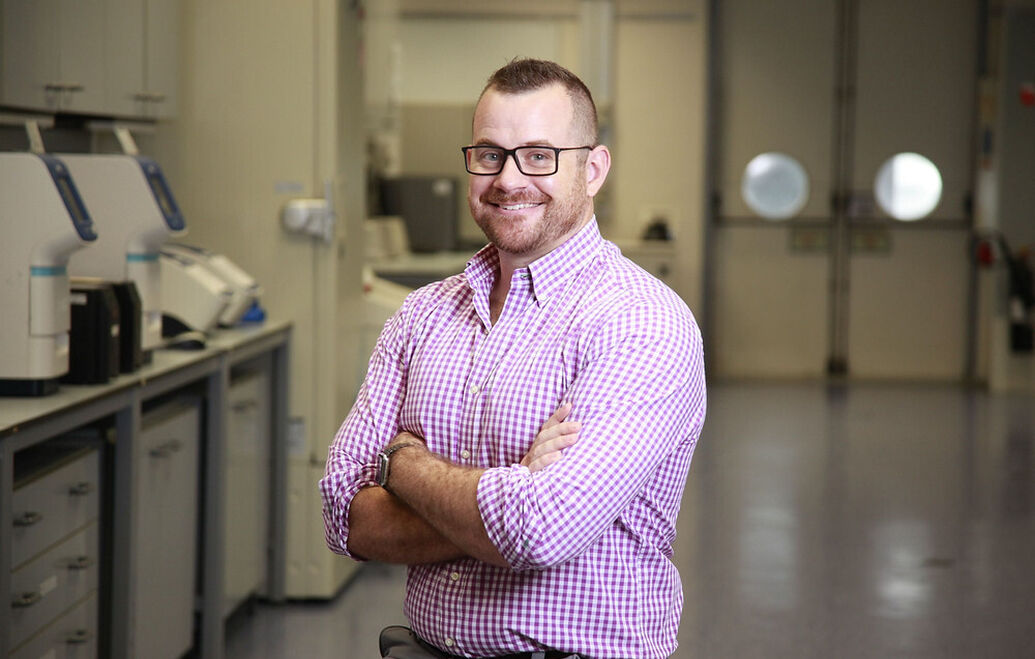

If you build it, will they come? Coral reef restoration using 3D printing and advanced eDNA monitoring
-
LocationOnline
-
Date09.12.2021
-
Time12:00 — 13:30
-
FeeFree
With declining coral populations across the globe, marine scientists and architects from the University of Hong Kong have combined digital fabrication with the latest in marine research to create an artificial seabed using 3D printed terracotta tiles.
In this Smart Citizens Design Talk join Dr David Baker, Associate Professor in the University of Hong Kong’s School of Biological Sciences and Swire Institute of Marine Science, as he discusses the development of these tiles and how, alongside advanced eDNA monitoring, these pioneering ecoshoreline technologies can support the restoration of coral reefs.
Through the lens of this project we will explore the potential global impact of these technologies and ask how similar innovations can be implemented in Plymouth to support marine biodiversity, through the collaboration of marine scientists and digital makers.
This talk will be followed by a Q&A.
Talk background
China’s Greater Bay Area (GBA) represents an economy built on global maritime trade, international finance, and high-tech industry - situated adjacent to some of the most biodiverse marine habitats on Earth. The South China Sea is home to >10% of global fisheries production, as well as the global epicentre of marine biodiversity - the Coral Triangle. However diverse, our local marine ecosystems are experiencing a decline in numbers and variety of species owing to centuries of over harvesting and habitat destruction. Today, there is cause for hope as the blank canvas of our ocean environment enjoys greater protection from progressive policies and management actions to reverse centuries of pollution and degradation.
At the same time - restoration ecology is experiencing a renaissance of innovation, particularly in China where the “new great wall” - coastal defenses - have had negative impacts on biodiversity and ecosystem functioning. It is now understood that flat, concrete surfaces are inhospitable to marine life due to concrete’s caustic pH microenvironment and lack of ecological "niche space". For this reason, human-made coasts are generally devoid of life.
To rectify this, ecoshoreline technologies are being pioneered in the GBA. Seawalls and piers are being ‘re-surfaced’ using complex tiles and eco-friendly materials. Artificial wetlands and mangrove stands are being integrated into traditional coastal rock walls and breakwaters to enhance biodiversity and integrate a self-healing and self-expanding nature-based solution. Below the surface, complex and modular ‘reef tiles’ are being deployed to facilitate the recovery and expand the area of foundational animal communities - oyster and coral reefs. There is immense potential for the GBA to become a research and development site for testing these exciting technologies with potential for global impact.
About David Baker
David M. Baker is an Associate Professor in the University of Hong Kong’s School of Biological Sciences and Swire Institute of Marine Science. Dr. Baker earned his Ph.D. from Cornell University, and joined the University of Hong Kong (HKU) after a postdoctoral appointment with the Smithsonian and Carnegie Institutions.
He is the co-founder and chief scientist of archiREEF, Ltd. - a startup company born from a collaborative research project with architects and government managers. He is the principle investigator of MarineGEO-Hong Kong, a grass-roots partnership with the Smithsonian’s network of Global Earth Observatories designed to conduct a modern census of marine biodiversity (using next-gen eDNA sequencing) and ecosystem functioning (using low-cost field assays).
This event is part of the iMayflower project and has been supported by The Department for Digital, Culture, Media and Sport, who fund the Cultural Development Fund, which is administered by Arts Council England.

